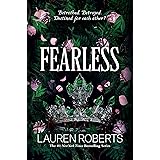A Look Back At Godzilla 2014: The True King of the Monster Movies
In 2014, a cinematic titan made its monumental return to the big screen with the release of “Godzilla”. This film, directed by Gareth Edwards and released by Warner Bros. and Legendary Pictures, not only served as a fresh take on a classic character, but it also spearheaded a new era for the franchise and played a key role in the creation of the MonsterVerse cinematic universe.
From its first moments, Godzilla captures the essence of what made the original 1954 film such a seminal work of art. Edwards, a true visionary director, honors the legacy of the original Godzilla by taking the material seriously, treating it as a cautionary tale about the dangers of nuclear power and the arrogance of mankind. At the same time, he updates the story for modern audiences, creating a monster movie that is relevant and culturally resonant.
Godzilla is a film driven by its characters, not just its special effects. The film’s human story, centered around the Ford Brody (Aaron Taylor-Johnson), a soldier and a family man, is the emotional core of the film. Through Ford, we see the impact that the monsters have on everyday people and the sacrifices they are willing to make to protect their loved ones. This makes the film more than just a mindless action extravaganza; it is a deeply personal story that gives the audience a human connection to the action on screen. And yes, Bryan Cranston is tremendous in the film but every piece works properly and logically throughout.
The significance of Godzilla 2014 cannot be understated. Before this film, American attempts to adapt the Godzilla franchise had been met with mixed responses. The 1998 version of Godzilla, while financially successful, was criticized for its significant deviations from the original Japanese Godzilla character, which left fans feeling somewhat betrayed.
Fast forward 16 years to 2014, and “Godzilla” accomplished something remarkable. It was the first successful American reboot of the franchise that was true to the spirit and symbolism of the original. By doing this, it bridged the gap between the Japanese Toho vision of the radioactive leviathan and a global audience unfamiliar with, or wary of, the creature’s roots.
The film also sets itself apart from its predecessors by its ability to balance action and suspense. The filmmakers expertly use the slow build-up of tension to create suspense, followed by explosive, heart-pounding action set pieces. The film’s depiction of the monsters is simply awe-inspiring, making us feel the sheer scale of the creatures and the destruction they can cause. Edwards’ sense of visual poetry and his masterful use of light and sound bring the creatures to life in a way we have never seen before.
The film’s attention to detail and its respect for the source material is what makes it the most important modern monster movie of all time. Edwards’ love for the Godzilla franchise is evident in every frame of the film, as he carefully crafts a movie that honors the original while updating it for modern audiences. The film’s design, sound, and music are all top-notch, creating a world that is immersive and believable. Godzilla 2014 also brought back the theme of nuclear fear, a critical aspect of the original 1954 film, but adapted it to reflect 21st-century anxieties about environmental disaster and mankind’s responsibility for it.

Godzilla’s impact on the genre is undeniable. It has inspired other studios to invest in similar projects, paving the way for a resurgence of monster movies. The film’s box office success, with over $200 million domestically and over $500 million globally, demonstrates the enduring appeal of Godzilla and the demand for well-made monster movies. The sequel, “Godzilla: King of the Monsters,” introduced beloved Toho monsters like Mothra, Rodan, and King Ghidorah. In 2021, “Godzilla vs. Kong” became another high point of the series, reinforcing the staying power of the MonsterVerse. And with other MonsterVerse projects like Godzilla vs. Kong: The New Empire, Skull Island and the to-be-announced Godzilla and the Titans Apple TV+ series, it’s a great time to be a G-fan!
Yup, I’ll say it again, Godzilla 2014 is the most important modern monster movie of all time because it defines what a blockbuster should be in the 21st century. With its thrilling action, suspenseful storytelling, and its reverence for the source material, Godzilla is a film that will be remembered for generations to come. It is a true work of art that sets a new standard for the monster movie genre and proves there is still room for originality and creativity in Hollywood blockbusters.
Auto Amazon Links: No products found. (69 items filtered out)












 OpenCritic
OpenCritic
1 Response
[…] MonsterVerse is no stranger to success, with titles like “Godzilla” (2014), “Kong: Skull Island” (2017), “Godzilla: King of the […]